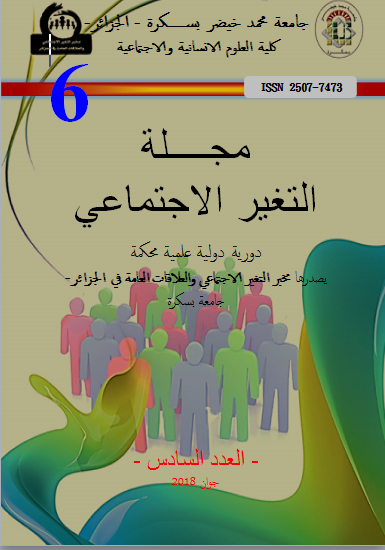البيئة الصفية المادية وعلاقتها بدافعية الانجاز الأكاديمي لدى تلاميذ المتوسط والثانوي في ولاية بسكرة
Résumé
تعد البيئة الصفية من البيئات التي يقضي فيها التلميذ معظم أوقاته، إذ يُمضي فيها قرابة 1600 ساعة تقريبا. ولقد حظيت البيئة الصفية باهتمام الباحثين خاصة البيئة المادية لما لهذه الأخيرة من مساهمة كبيرة وفعالة في نجاح الدرس، وفي زيادة دافعية التلميذ وتوجيه سلوكه نحو التحصيل والانجاز، الأمر الذي أكده(زريق، 1969)، حيث أشار إلى الشروط المادية للبيئة الصفية كالتهوية والإضاءة والتدفئة والتي من شأنها أن تؤثر في إقبال التلميذ على الدراسة وفي دافعتيه للإنجاز الدراسي. وتأسيسا على ما سبق جاءت هذه الدراسة لتبحث في العلاقة بين البيئة الصفية المادية ودافعية الانجاز الأكاديمي لدى تلاميذ المتوسط والثانوي في ولاية بسكرة. وكذا البحث عن ما إذا كانت توجد فروق في البيئة الصفية والدافعية للإنجاز تبعا لمتغير المرحلة التعليمية(متوسط/ثانوي).
The class environment is one of the environments in which the student spends most of his time. He spends about 1600 hours. The classroom environment has received the attention of the researchers, especially the physical classroom environment. The latter has a significant and effective contribution to the success of the lesson and to increasing the students' motivation and directing their behavior towards achievement. (Zreik, 1969). Zreik pointed out the physical conditions of the classroom environment such as which will affect the student's interest in the study and in his motivation to achieve the academic achievement.
Thus, the importance of the physical classroom environment was examined in order to examine the relations hip between the physical classroom environment and the motivation for scholastic achievement in the middle and secondary school pupils in Biskra State



